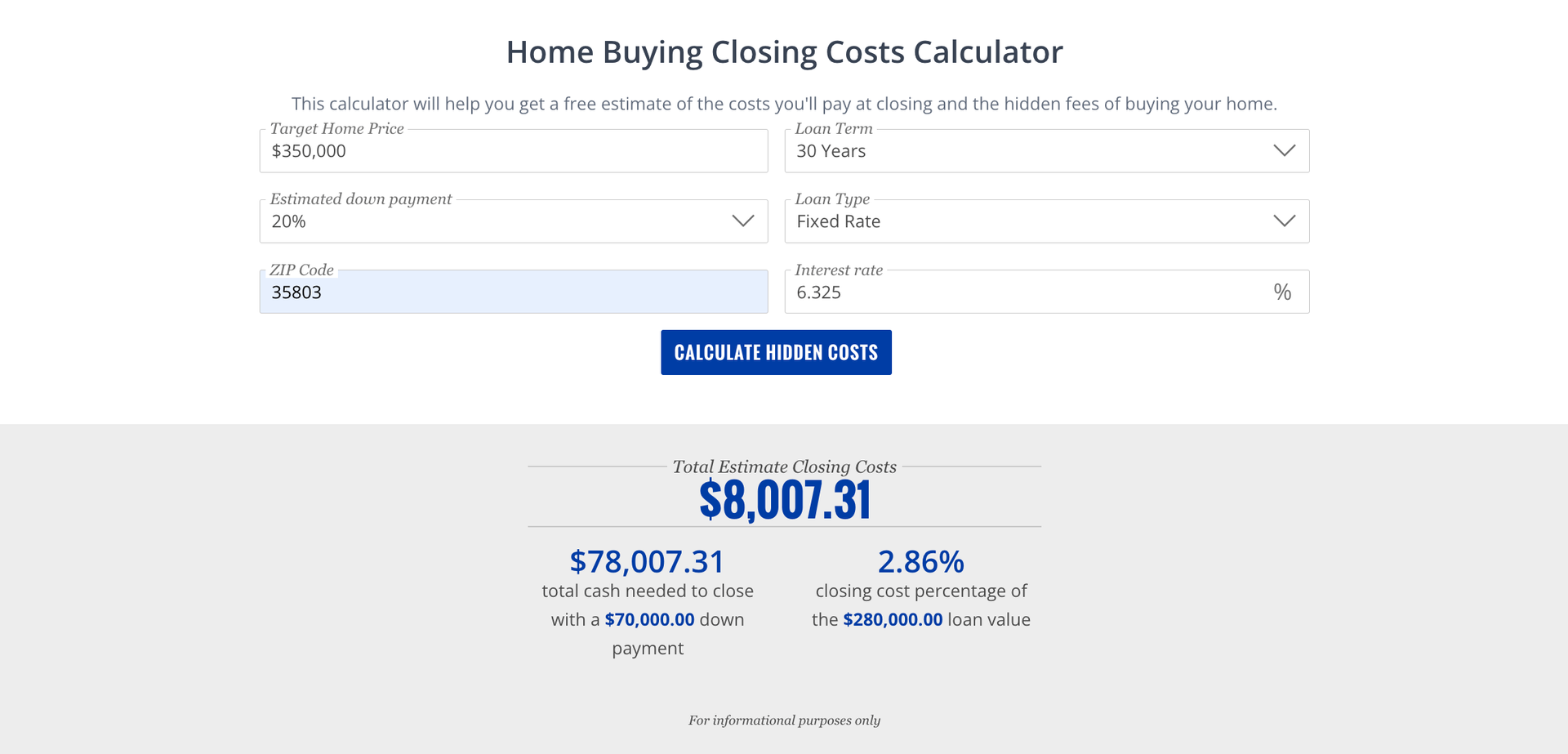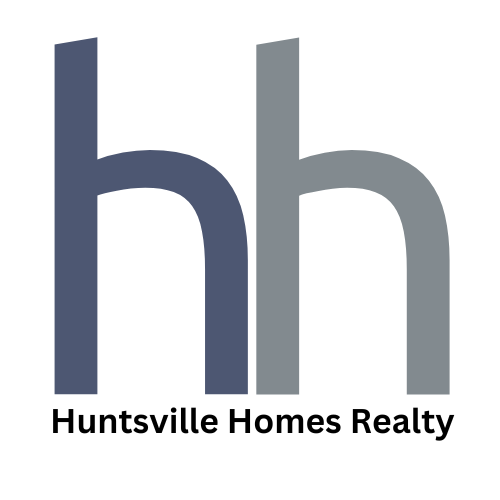Be Prepared for the Hidden Closing Costs You’ll Pay For Your New Home
Mortgage calculators only show you part of the fees
Almost every time I sell a home to buyers taking out a mortgage, I see raised eyebrows and hear exclamations like "Wow!" or "What?!" when they see the net sheet from their lender that lays out what are called "closing costs."
These exclamations are usually also accompanied by statements like, "This isn't what the mortgage calculator said?!"
If you're using a mortgage calculator to see what you will be paying, just know that most of them never show you what you'll pay in fees to purchase the home.
Sometimes, these extra costs can be signifiant, so read on to find out how you can avoid the "sticker shock" when financing your next home.
So What are Closing Costs, Anyway?
Closing costs are the additional costs that are incurred when buying a home. They are typically not included in the home's purchase price and are paid at the end of the process.
Almost no mortgage calculator out there shows you estimates of these costs.
Closing costs typically include appraisal fees, attorney fees, title insurance, transfer taxes, and other miscellaneous charges. These fees can vary significantly from one house to the next and are typically calculated as a percentage of the home's purchase price.
Average closing costs for a home purchase in the United States range from 2-5% of the purchase price. The exact closing costs will vary depending on factors, such as the purchase price, the lender, and the type of loan.
How to Estimate Your Closing Costs
There are a few calculators out there that will show you what mortgage calculators don't. The best one I've found is provided by home insurance company and can be accessed at:
https://www.amfam.com/resources/tools/hidden-cost-calculator
All you have to do is pop in your estimated loan information, such as loan term, down payment, purchase price, and the zip code of the home. What you get back is an estimate of the money you'll need to bring to the closing table.

The calculator further breaks down your closing costs into each individual fee to show you what exactly you're paying for. Simply expand each section to see each cost itemized for you,

Understanding the Different Types of Closing Costs
To explain what closing costs are in a bit more detail, here's a breakdown of the fees into categories of cost:
1.
Lender Fees
Lender fees include the costs associated with obtaining a loan, such as origination, application, and processing fees. These fees are usually paid directly to the lender.
2. Title and Escrow Fees
Title and escrow fees cover transferring the property’s title from the seller to the buyer. This includes title searches, title insurance, and title closings.
3. Appraisal Fees
Appraisal fees cover the cost of a professional appraisal of the home. This is usually done to ensure the house is worth the purchase price.
4.
Taxes
Closing costs will also include taxes, such as transfer taxes, typically paid by the buyer.
5.
Miscellaneous Fees
Miscellaneous fees include home inspections, credit reports, and other various fees.
You can see all of these costs for any home you're considering buying - and what you're likely to pay for each - outlined in the free online calculator.
How to Reduce Closing Costs
Closing costs can add up quickly, so it’s essential to understand how to reduce them.
1.
Shop Around
Shopping around for the best deals on closing costs can help you save money. Be sure to compare fees and costs from different lenders, title companies, and other vendors to get the best deal.
2.
Negotiate
It’s also a good idea to negotiate the closing costs. For example, you can ask the seller to pay for some closing costs or split them with you.
3. Get a High Loan-to-Value Ratio
A high loan-to-value ratio (LTV) means you borrow a lower percentage of the purchase price. This can help reduce closing costs, as lenders typically charge a lower interest rate for loans with a high LTV.
4.
Pay Your Own Closing Costs
If you have the cash to do so, you can pay your own closing costs. This can save you money, as lenders often offer a lower interest rate if you are willing to pay your closing costs.
5.
Ask for a Rate Lock
If you are getting a loan, you can ask your lender to lock in a low-interest rate for a certain period of time. This will help protect you against any potential rate increases during the closing process.
Conclusion
Closing costs are the additional costs associated with buying a home. They can vary significantly from one house to the next and range from 2-5% of the purchase price.
Closing costs typically include lender fees, title and escrow fees, appraisal fees, taxes, and miscellaneous fees.
Understanding how to reduce closing costs is essential, such as shopping around for the best deals, negotiating, getting a high loan-to-value ratio, and paying your own closing costs.
Thinking of buying?
Reach out to me today and I'll guide you through the entire process, from finding the right lender to getting the seller to potentially cover all or part of your closing costs! Discover a new level of service with Huntsville Homes Realty.

Rebekah Polancich, Realtor® & Broker
-
Guaranteed expertise
 Let's chat!
Let's chat!I've been a professional, full-time agent and broker for almost a decade. What's more, I'm a successful business owner who's built, run, and sold multiple companies. Huntsville Homes is my company. No need to take chances, get the most qualified agent for your deal from the get-go.
-
Proven experience
 Contact me
Contact meOver the last ten years, I've sold hundred of homes. I've seen easy, quick deals, and very challenging transactions. Through each one, I've gained knowledge and improved my level of service. This means you benefit from my experience no matter how challenging your deal may be.
-
Caring & compassionate
 Let me help
Let me helpBuying a home can be one of the most meaningful and emotional experiences in a person's life. I take my job very seriously and I genuinely love helping people find a home - not jus a place to live.
Brokerage

Huntsville Homes Realty, LLC
600 Boulevard S SW Suite 104
Huntsville, AL 35802
Subscribe to my newsletter
Newsletter
We will get back to you as soon as possible.
Please try again later.
Huntsville Homes encourages and supports an affirmative advertising and marketing program in which there are no barriers to obtaining housing because of race, color, religion, sex, handicap, familial status, or national origin. All residential real estate information on this website is subject to the Federal Fair Housing Act Title VIII of the Civil Rights Act of 1968, as amended, which makes it illegal to advertise "any preference, limitation, or discrimination because of race, color, religion, sex, handicap, familial status, or national origin, or intention to make any such preference, limitation or discrimination." Your state or local jurisdiction may impose additional requirements. We are committed to the letter and spirit of the United States policy for the achievement of equal housing opportunity.
All Rights | Huntsville Homes Realty LLC | Web Marketing by LeadSnare.io | Privacy Policy


